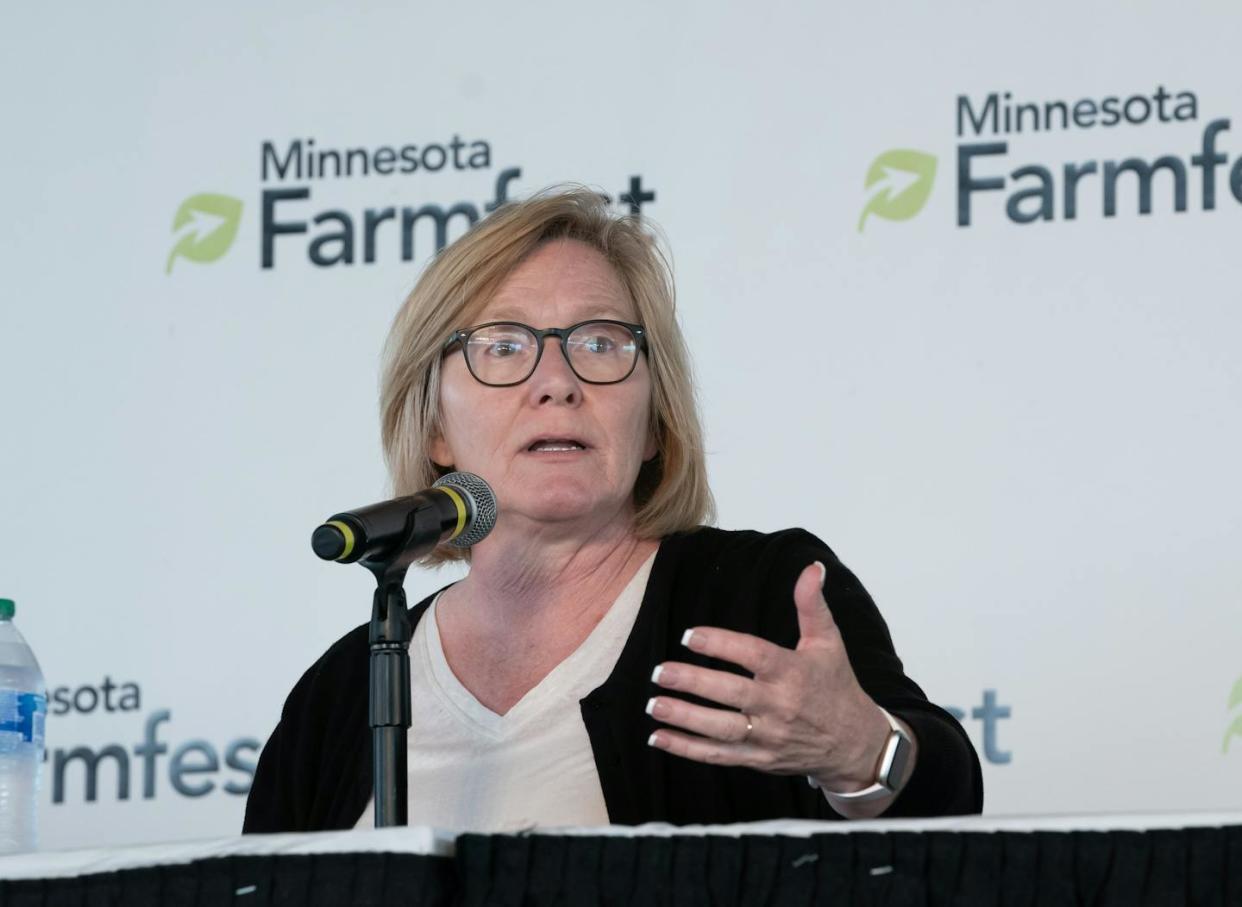Counterpoint: Fischbach represents the Seventh District well in Congress

- Oops!Something went wrong.Please try again later.
- Oops!Something went wrong.Please try again later.
Opinion editor's note: Editorials represent the opinions of the Star Tribune Editorial Board, which operates independently from the newsroom.
•••
I read with interest the July 8 column by Star Tribune journalist Karen Tolkkinen ("Rep. Fischbach, take our questions.")
Tolkkinen unfairly criticizes Seventh District Republican U.S. Rep. Michelle Fischbach and compares her unfavorably to her untested Republican opponent, Steve Boyd, and her predecessor, former Seventh District DFL Rep. Collin Peterson.
The article was dripping with sarcasm and inconsistencies as Tolkkinen touted the strengths of both Peterson and Boyd. While she criticized federal agricultural policy as favoring corporate farming and as having "shuttered so many Minnesota farms," she fails to cite the pivotal role played by Peterson himself in making this happen.
It was Peterson who chaired the House Agriculture Committee where five-year U.S. farm bills are authored and written. Peterson played a key role in advancing large corporate agriculture interests in Congress, and agriculture PACs contributed millions of dollars to his re-election campaigns. Peterson's record here was a key factor in why Fischbach defeated the 30-year incumbent in 2020.
Tolkkinen also raised an irrelevant issue when she stated, "Boyd is handsome and articulate with an underlying steeliness." How relevant is that statement when we are dealing today in Congress with critical and potentially catastrophic problems and issues of national and international importance?
When I asked Boyd earlier this year at a Morrison County Republican meeting why he was running for Congress against Fischbach — the most conservative member among the four-member Minnesota House Republican delegation, and who has the strong endorsement of Donald Trump — Boyd conceded these facts but stated that it was more important to elect an "outsider" like himself as representative of "grassroots government."
In rural Minnesota, grassroots government takes place on township boards and city councils. Boyd has served on neither. Fischbach served her community of Paynesville when she was elected to its City Council in 1994. Also, Tolkkinen claimed that Fischbach does not hold public meetings or take questions from constituents. I've personally attended several public meetings throughout Central Minnesota with Fischbach. She also has fielded questions from constituents many times on a local radio "open mike" program.
The column also failed to mention the important fact that Fischbach is the only Minnesotan today serving on the powerful House Ways and Means Committee, the all-important tax writing committee of Congress.
Fischbach strongly supports the extension of the Trump tax cuts of 2017, which expire in 2025. What's more is the fact that Fischbach has been a champion in support of preserving Social Security and Medicare, and both of these critical programs are addressed in the House Ways and Means Committee.
In Congress, Fischbach has been a strong leader in opposing President Joe Biden's border policies and also ending illegal immigration. Fischbach has personally been to the southern border and has committed her efforts to stopping the deadly flow of fentanyl, human trafficking and foreign terrorists that now threaten America's safety.
Indeed, Congresswoman Fischbach does excellent work in Congress and represents the people of her district well.
Steve Wenzel, of Little Falls, Minn., is an instructor of political science at Central Lakes College in Brainerd. He was a Trump delegate to the 2016 and 2020 Republican National Conventions, and is a former DFL legislator.

